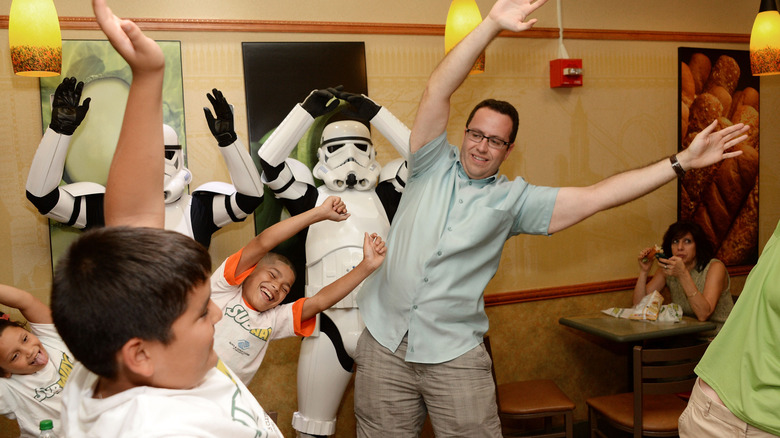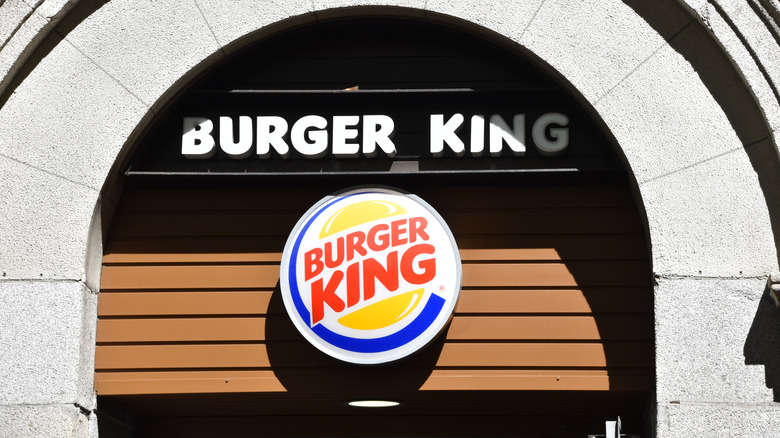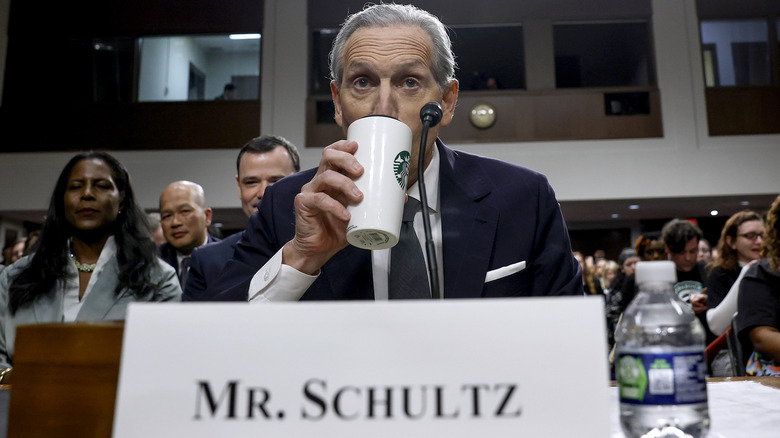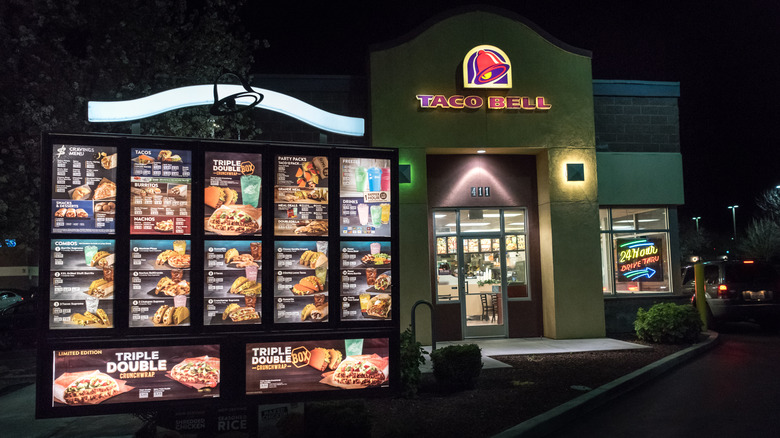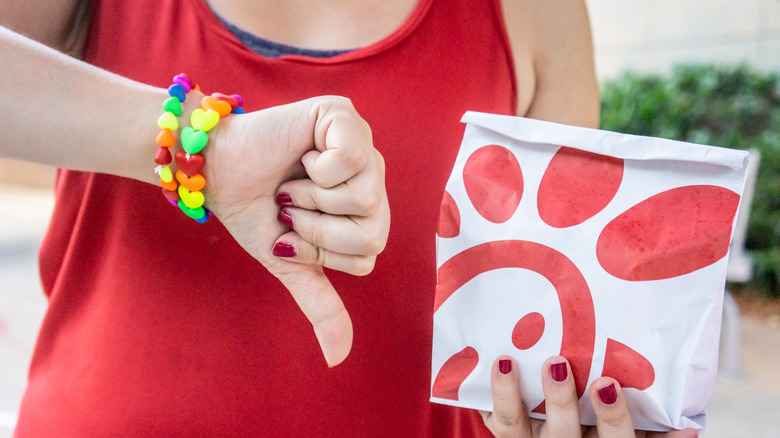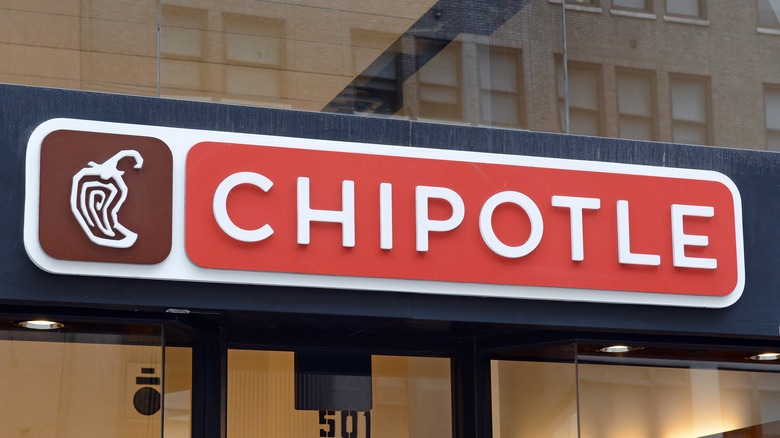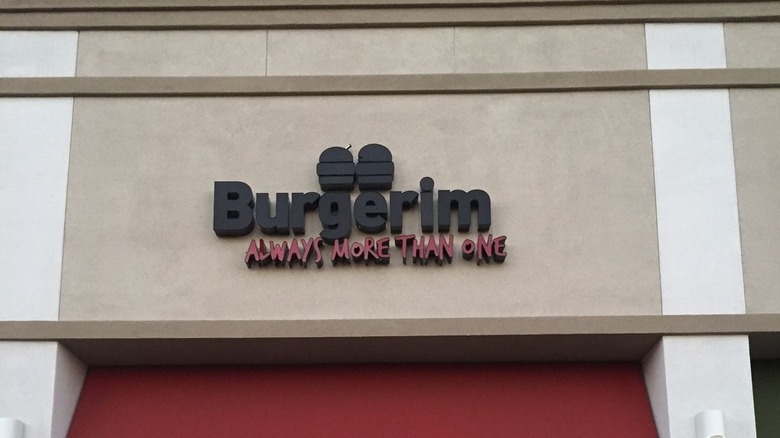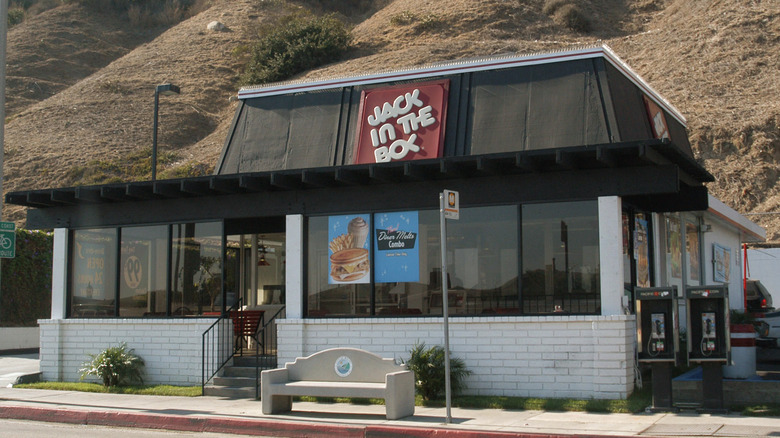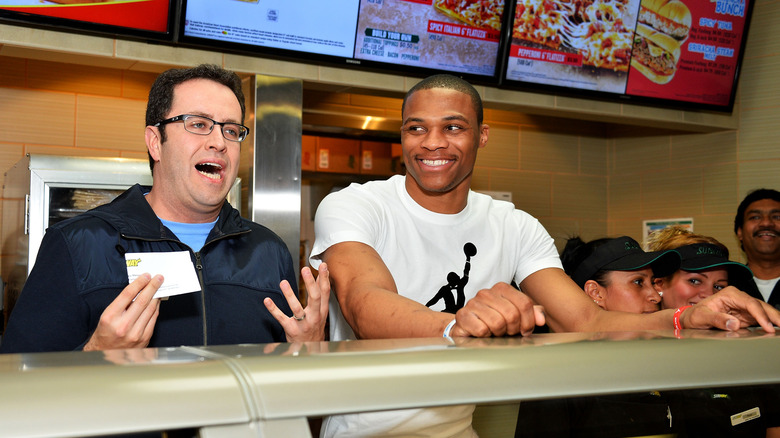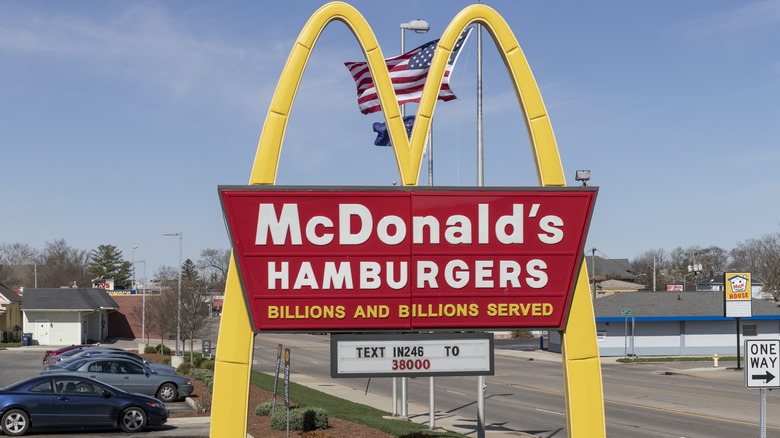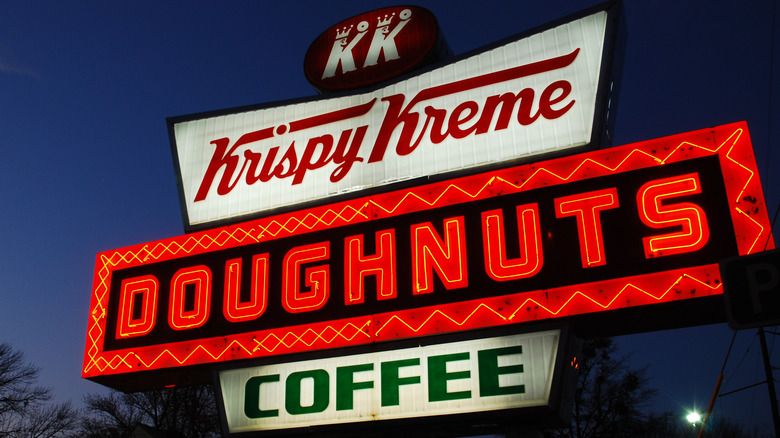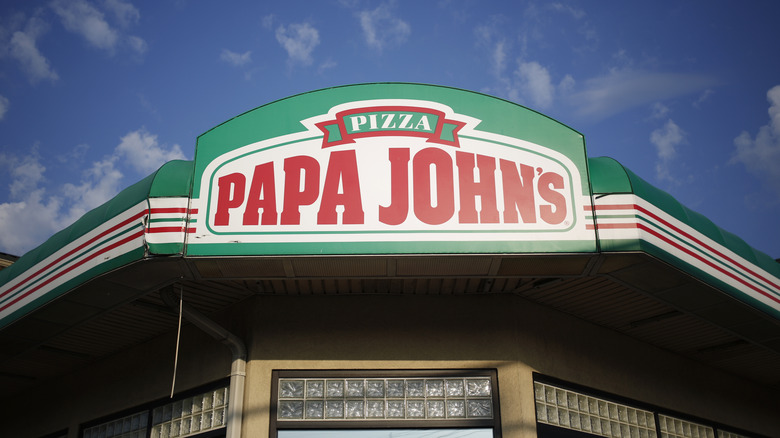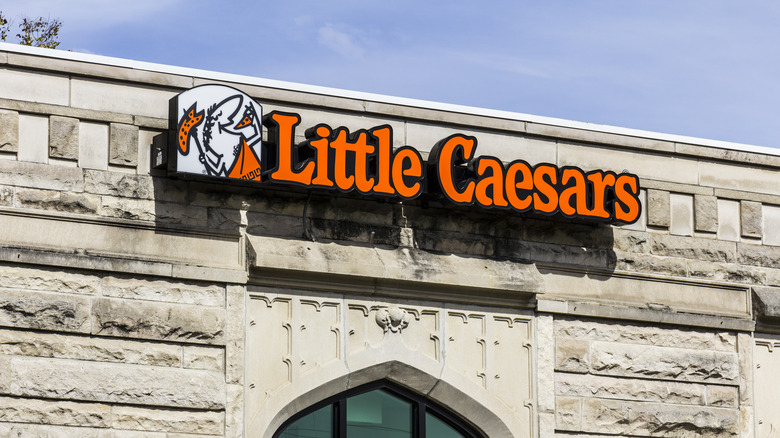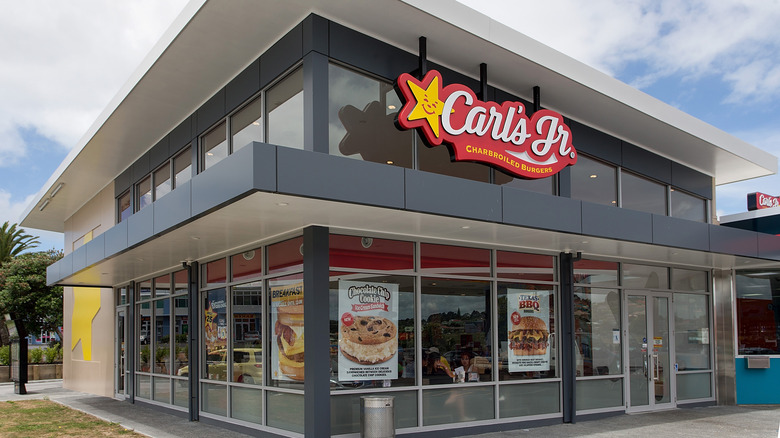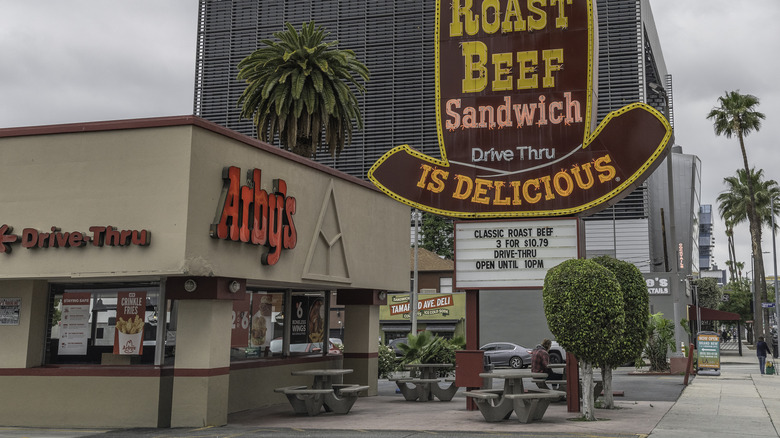Fast Food Restaurants Who Can't Seem To Shake Their Bad Reputation
Fast food restaurants have become a regular part of people's lives in America, offering quick and convenient meals for those on the go. But some chains are notorious for their unhealthy menus and questionable ingredients, while others have found themselves caught up in scandals that have significantly affected our perception of them.
There are plenty of companies that have had their reputations tarnished over some seriously outrageous occurrences. Some customers have gotten sick from eating bad food, and a few have even claimed to have found body parts in their meal. Other fast food chains have been accused of poor labor practices or scams involving franchisees. It's pretty disturbing controversies such as these that have some customers rethinking where to spend their money.
But with world-class public relationships firms, these corporations have still managed to retain a customer base and pull in profits. That doesn't mean that they haven't left a lasting bad taste in our mouths, though. Here are some fast food chains with reputations they just can't leave behind.
1. Burger King
If you peruse the internet, you'll find a slew of content asking why Burger King is so hated or just outright stating the sentiment. There's even an "I HATE BURGER KING!" Facebook page. Customers on Reddit and sites like Yelp consistently complain about the decline in the quality of food and service.
Burger King has also been known for its controversial marketing strategies, which have caused public outrage on several occasions. The company faced criticism in 2022 over a Holy Week-themed ad campaign in Spain that quoted Jesus during the Last Supper to promote its new vegetarian burger. Catholics called for a boycott of the fast food chain, prompting the burger purveyor to issue an apology.
Apparently, it hadn't learned its lesson from a year prior when the company's U.K. account posted on social media that "Women belong in the kitchen" to promote its female chef scholarship program. To make matters worse, the Tweet was published on International Women's Day. Burger King later deleted the post and apologized. On top of mocking and shortchanging its customer base, the chain has also been accused of mistreating employees. The National Labor Relations Board ruled in 2014 that a franchisee was guilty of union-busting techniques and threatening pro-union workers.
2. Starbucks
Starbucks has been giving some serious Karen and Scrooge vibes in recent years. Protests occurred in and outside a Philadelphia location in 2018 after an employee called police on two Black men who were denied use of the restroom because they didn't buy anything and then refused to leave when asked. They were arrested, but charges were later dropped.
Despite profit growth of 31% in the fourth quarter of 2021 — a time of financial crisis for many Americans — the coffee chain decided in February 2022 to raise prices for the third time in about five months. The cost of a basic cup of Joe at some locations had already risen by about 20%. Meanwhile, former CEO Kevin Johnson was rewarded with a 39% increase in total compensation in fiscal year 2021 to an unconscionable $20.4 million. Its excuse? Inflation and growing labor costs. Civil rights historian Andy B. Lewis called the explanation of the hikes "word salad to hide corporate greed."
Starbucks has also been accused of anti-union practices, including closing stores where employees were attempting to unionize and firing workers involved, which the chain denied. Former Starbucks CEO Howard Schultz even had to testify before a Senate committee in March 2023 regarding the company's alleged anti-union practices. In some cases, federal judges have ruled that Starbucks illegally fired workers in Buffalo, New York, and Memphis, Tennessee. The company has also faced criticism for its handling of employee benefits and wages.
3. Taco Bell
Something that lingers in the minds of some of us before heading over to Taco Bell is thoughts about what we are actually eating. In 2011, Taco Bell found itself at the center of a highly publicized lawsuit that claimed the chain's "seasoned beef" was only 36% beef with the remaining content consisting of various fillers, binders, and extenders. This led to widespread concern and suspicion about the true nature of Taco Bell's ingredients.
Taco Bell denied using extenders and refuted the claims by releasing a detailed list of the ingredients in its seasoned beef as well as the reasons for their inclusion. The chain revealed that its beef recipe was actually 88% beef and 12% filler, with the latter consisting of various spices, additives, and thickeners. Many of these ingredients, such as onion powder, sea salt, chili pepper, and tomato powder, are commonly used in home cooking.
Although the lawsuit was eventually dropped, the damage to the brand's reputation had been done. Taco Bell was forced to spend millions to address the issue and regain consumer trust. The brand has also consistently been the butt of jokes associating its food with needing an immediate bathroom break.
4. Chick-fil-A
Chick-fil-A has faced its own share of controversies over the years. The most notable has been the company's donations to anti-LGBTQ organizations and the public stance of its executives on same-sex marriage. In 2012, Chick-fil-A president and chief operating officer Dan Cathy stated that the company supported "the biblical definition of the family unit," which led to public backlash and calls for boycotts.
Organizations like the National LGBTQ Task Force were also concerned about what it meant for the chicken chain's LGBT employees. Though the company said in 2012 it would "leave the policy debate over same-sex marriage to the government," it continued to donate to what ThinkProgress said were "discriminatory groups" in the following years. In 2017, for example, the Chick-fil-A Foundation had donated nearly $1.8 million to Christian groups that oppose homosexuality. In response to the controversy, Chick-fil-A announced in 2019 that it would no longer donate to the Salvation Army and the Fellowship of Christian Athletes (FCA), both of which have been criticized for their views on homosexuality and same-sex marriage.
5. Chipotle Mexican Grill
Chipotle Mexican Grill got into some hot water after the Department of Justice found that the chain "adulterated food" that caused more than 1,100 to get sick between 2015 and 2018. The company was hit in 2020 with criminal charges and a $25 million fine, the fattest fine ever waged in a food safety case at that time. A Food and Drug Administration press release said the company "failed to ensure that its employees both understood and complied with its food safety protocols."
In August 2015, an employee was sent home after he started vomiting. It should have immediately been reported to Chipotle safety officials who would put health precautions in place. However, the Simi Valley, California, location didn't report this until two days later after several customers fell ill. A similar incident happened in December of that year when a norovirus outbreak was linked to a Boston restaurant after a vomiting employee was forced to continue working. Those who got sick included members of the Boston College basketball team.
About 647 people who ate at a Powell, Ohio, Chipotle got sick after eating food that hadn't been kept at a proper temperature. That store was also found to have several critical health violations. Many of the chain's teenage and young adult employees told investigators that they felt pressured to work when sick, that they couldn't find someone to take their shift, or that they didn't want to disappoint teammates by not showing up.
6. BurgerIM
Calabasas-based BurgerIM made headlines in 2022 when the U.S. Federal Trade Commission (FTC) sued the company and its owner, Oren Loni, for allegedly misleading customers into buying failing franchises. According to Forbes, the two parties are being sued over allegations that they are responsible for about 1,500 individuals losing out on tens of millions of dollars after they were duped into buying bum franchises. The franchisees were reportedly kept in the dark when it came to the true difficulties of running one of these establishments and were lured in by promises of overinflated profits.
If that wasn't bad enough, Loni up and disappeared in 2019, abandoning his business and franchisees who were promised support. It is suspected that he now resides in Israel. As a result, branch owners, some of whom were veterans, were thrown into debt and bankruptcy. In a separate action in 2021, California officials ordered BurgerIM to refund any franchise fees it collected and to pay $4 million in penalties.
Franchise attorney Harold Kestenbaum noted that this case is a perfect example of how important it is to conduct thorough due diligence before investing in a business opportunity, saying, "If it sounds too good to be true, it usually is. Make sure that when you are contemplating the purchase of a franchise, you hire the right professionals and do your due diligence."
7. Jack in the Box
Jack in the Box has the most egregious stain on its history. An E. coli outbreak in 1993 actually killed three children under age 3. The outbreak, caused by contaminated hamburger patties at 73 of its locations, sickened over 700 people across four states, resulting in 171 hospitalizations and four total deaths. The incident severely damaged the fast food chain's reputation and raised questions about the safety of its food.
Investigators later identified five slaughterhouses in the U.S. and one in Canada as possible sources of the contaminated meat, though the exact origins were never pinpointed. Jack in the Box and its parent company, Foodmaker Inc., faced legal action from victims and their families, ultimately settling numerous cases for millions of dollars.
In the wake of the E. coli outbreak, Jack in the Box implemented numerous changes to improve its food safety practices. These included adopting Hazard Analysis and Critical Control Points (HACCP) protocols, increasing cooking times and temperatures for hamburgers, and working with suppliers to ensure the safety of its meat. This later became a standard for the entire fast food industry.
8. Subway
Subway has had its share of scandals. In 2022, a judge ruleda lawsuit alleging Subway's tuna sandwiches "partially or wholly lack tuna" could proceed. The plaintiff claims, per NPR, that lab testing found "no detectable tuna DNA sequences whatsoever" in 19 out of 20 samples from restaurants. A Subway spokesperson told NPR that "Subway serves 100% tuna." (A May 2023 filing to suspend the suit is pending.) In 2020, an Irish Supreme Court declared the chain's bread could not be defined as bread, which is considered a staple, due to its high sugar content. And in 2014, the company was petitioned to remove a flour-whitening agent from its bread called azodicarbonamide, which is used in yoga mats.
As for non-food-related scandals, former spokesperson Jared Fogle became a symbol of the brand's success after he claimed to lose 245 pounds by eating Subway sandwiches. His reputation and Subway's image took a massive dive in 2015 he was arrested and later pleaded guilty to possessing or distributing child pornography and traveling across state lines to pay for sex with a minor. He was sentenced to more than 15 years in federal prison.
And in 2021, a lawsuit filed in Nevada accused Subway of financially exploiting overseas immigrants, victimizing franchisees, and leading some to lose their life's savings. The suit alleges that sub shop's business development agents (BDAs) systematically exploited Indian and Indian American franchisees by enforcing a lengthy set of rules and imposing costly fees, sometimes even stealing their stores.
9. McDonald's
Many consumers lost trust in McDonald's after learning in 2001 that a marketing company employee had stolen millions in winning Monopoly game stickers from a nationwide promotion. McDonald's found itself in hot water again in 2014 after it pulled McNuggets from the market in Hong Kong when locations in China and Japan were found to have served expired meat processed by the chain's supplier.
In 1990 the chain switched from using beef tallow to vegetable oil in its fries but ended up in 2002 settling a suit that claimed vegetarians and religious groups were misled by McDonald's continued use of beef flavoring in its so-called "World Famous Fries." Fast forward to 2023, when some vegans and vegetarians were shocked to discover there was beef flavoring in McDonald's fries in the U.S. The reminder came through a TikTok video that quickly went viral, prompting McDonald's to clarify that fries in the U.K., Canada, and Australia do not contain beef flavoring and are vegan-friendly.
McDonald's has also been linked to U.S. labor abuses and Amazon rainforest deforestation. A 2022 report alleged that beef derived from land that was illegally cleared in Brazil had been shipped to slaughterhouses that the chain uses as a supplier. Closer to home, three franchisees of the Golden Arches that operated restaurants in four states were fined for violating child labor laws. For their role in allowing more than 300 minors to work illegally in their restaurants, the owners together paid a measly $212,544 fine.
10. Krispy Kreme
In 2015, a Krispy Kreme shop in the United Kingdom thought it would be cute to create a promotion called KKK Wednesday, which they say stood for Krispy Kreme Klub. No one else, however, thought it was funny as it invoked the promotion of a more infamous KKK, the Klu Klux Klan. The company apologized for its alleged doughnuts of hate and chalked it up to "unintentional oversight." This became less believable in 2019 when the company's owner admitted his ancestors were Nazis who used slave labor during World War II.
There have been other scandals too. The company said in 2005 it lost $25.6 million as a result of poor accounting practices. After an investigation, though, the U.S. Securities Exchange Commission determined in 2009 that the company intentionally over-exaggerated its earnings and hit them with just under $800,000 in fines. The doughnut chain was accused that same year of damaging a waste treatment plant in Fairfax County, Virginia, by dumping grease and yeast from one of its stores down the pipes.
11. Papa John's
Papa John's founder, John Schnatter, had been the subject of so many scandals that he had to resign. In 2012, Schnatter openly criticized the Affordable Care Act, stating that offering his employees health insurance would increase the price of pizzas across the country. In 2015, Papa John's settled a lawsuit for $12.6 million with delivery drivers who claimed the company refused to properly reimburse their mileage expenses.
In 2017, Schnatter blamed the NFL and its national anthem protests for a decline in Papa John's pizza sales (the chain had a sponsorship deal at the time). This statement led to the company being associated with far-right groups, forcing it to disavow any relationship with hate groups. In 2018, Schnatter used a racial slur during a conference call, resulting in his resignation as chairman and the removal of his face and likeness from company advertisements. "I used the n-word ... because I was trying to make a point that I wasn't going to do that, that's not what we're about," Schnatter said, according to the Delaware News Journal (via New York Post). "My comments were anti-racist."
That same year, Forbes reported that it interviewed 37 current and former Papa John's employees who accused Schnatter of spying on them, engaging in sexually inappropriate conduct, and fostering a "bro culture" where female employees were mocked. The story alleged there were confidential agreements with two women who accused the company founder of sexual harassment.
12. Little Caesars
In June 2020, a couple in Ohio discovered a backward swastika made from pepperoni on their Little Caesars pizza. The incident led to widespread outrage and the termination of the responsible employees. Little Caesar Enterprises issued a statement emphasizing its "zero tolerance for racism and discrimination in any form," according to CBS News.
In October 2018, a video surfaced on social media showing what appeared to be frozen DiGiorno pizzas behind the counter at a Little Caesars location. The implication was that Little Caesars was selling frozen pizzas rather than making its own. A spokesperson for Little Caesars denied the allegations, stating that the pizzas were temporarily stored at the location due to a misunderstanding with a neighboring Kmart store. Despite the company's explanation, the incident raised questions about the quality of Little Caesars products.
The pizza chain caught flack again in 2021 after another video surfaced of what some called a gross method for preparing sauce that involved an employee using an attachment on a power drill to stir the sauce in a plastic container that was on the floor.
13. Carl's Jr./Hardee's
Carl's Jr. and its sister brand, Hardee's, have been known for their provocative advertising campaigns. The 2015 Super Bowl commercial for Carl's Jr. featuring a scantily clad model promoting the chain's all-natural burger drew criticism for objectifying women. There were other ads too. The company, however, explained its advertising strategy in a news release back in 2011, stating, "We believe in putting hot models in our commercials, because ugly ones don't sell burgers" and later telling FOX Business Network that the ads "saved a lot of jobs" at the company by attracting "young hungry guys." In 2019, the company announced a shift to ads that focused more on the food.
The chains' parent company, CKE Restaurants Holdings, has also been accused of paying employees too little, not putting enough staffers on shifts at restaurants, and having management opposed to minimum wage laws. Andrew F. Puzder, who ran the company from 2000 to 2017, faced allegations domestic violence and had been in the running for U.S. labor secretary before it became public that his housekeeper was an undocumented immigrant. Carl's Jr. was also criticized after a video surfaced in 2017 of a franchisee putting his bare arm into a large container of barbecue sauce in order to mix it with his hand. Several other food-safety violations were also caught on camera.
14. Arby's
Rumors flew as far back as 1997 that Arby's roast beef was made from paste, powder, gel, and/or liquid. The website Snopes, however, found this accusation to be untrue. But there were some other unfortunate truths discovered about the chain. It faced multiple foodborne illness outbreaks over the years that contributed to the chain's negative public perception and raised questions about its food-safety practices. In 2006, a salmonella outbreak at an Arby's location in Georgia involved at least 72 diners, and a novovirus outbreak in 2021 in Illinois sickened at least 92 people.
In 2015, the chain had to fire one of its managers in Florida for refusing to serve a police officer, causing a big scandal and forcing the company to issue an apology. A decade earlier, the chain was sued for more than $50,000 by a customer who said he found a piece of human finger in his sandwich. Health investigators in Ohio found that the restaurant manager shredded his thumb while shredding lettuce and that he sanitized the area but didn't throw away a nearby bin of lettuce. If that wasn't gross enough for you, an ex-Arby's manager went to prison after admitting to possessing child pornography and peeing in a mix for milkshakes that may have been served to dozens of people at a Washington state restaurant in 2021 because it gave him sexual gratification.
